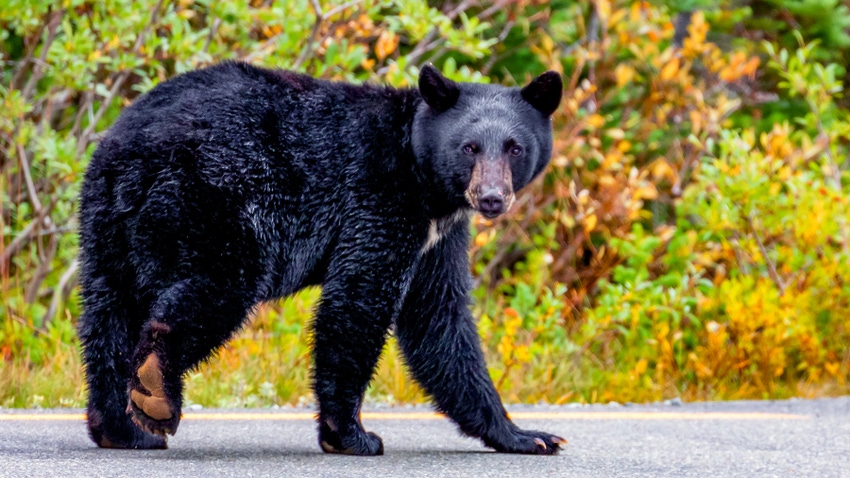April 7, 2023

The black bear’s winter slumber will soon be over. Now through early May, bears leave their dens and begin looking for food to replenish their bodies.
As they search for nourishment, it's important to remember that human behavior affects bear behavior, according to the Michigan Department of Natural Resources.
"Just like humans waking from a long nap, bears first look for water, often drinking from rivers and ponds or eating snow. Their early-spring menu consists of last year’s vegetation, salvaged carcasses and fresh green shoots as they emerge," says Rachel Leightner, MDNR wildlife outreach coordinator. "Though these food sources are readily available, it is difficult to resist the calorie-rich offerings of bird seed, garbage, beehives and pet foods. Watching bears forage near your home may be an exciting chance to see wildlife up close. But what’s really happening could be very troublesome for both you and the bear."
Bears that find reliable food sources near homes can become repeat visitors and may lose their fear of humans, she adds. Additionally, if a female bear with cubs teaches her young to forage from these food sources, it can lead to problematic behavior later in life and negative outcomes such as property damage, loss of livestock, and dangerous situations for both humans and bears.
Leightner says, fortunately, avoiding these problems is easy if you take a proactive approach and suggests the following steps:
Remove bird feeders during the spring, summer and fall. Birds have an abundance of natural food sources during these seasons. If you like viewing birds from the comfort of your home, consider planting native flowers and shrubs this spring that will draw birds in. Even a small planter of native wildflowers will do the trick. Planting native species for the first time can be a daunting task, but Audubon’s Plants for Birds database can help, providing information about which important food sources each native plant provides, which birds they attract, where to plant and numerous additional resources for amateurs and green thumbs alike.
Bring in outdoor pet foods and keep grills and patio furniture clean. A bear’s ability to smell far exceeds the human nose. While you may not be able to smell the pet food and spills on your patio, a bear certainly can.
Secure dumpsters and keep garbage cans indoors overnight. Take garbage cans to the curb the morning of pickup. While it may add a few more minutes to your morning routine, it is still faster than having to clean up garbage contents strewn across your yard from a hungry critter looking for a midnight snack. It also may prevent a bear from finding additional reasons to hang around your property.
Protect beehives with electric fencing, especially if the apiary is in a rural or forested area. Recommendations for materials and design of the fence can be found here: Protect Your Beehives from Black Bears.
These steps are most effective when taken proactively. For more tips on how to avoid bear conflicts and encounters, visit michigan.gov/bear and click on the Preventing conflicts with bears link.
Source: MDNR
You May Also Like




